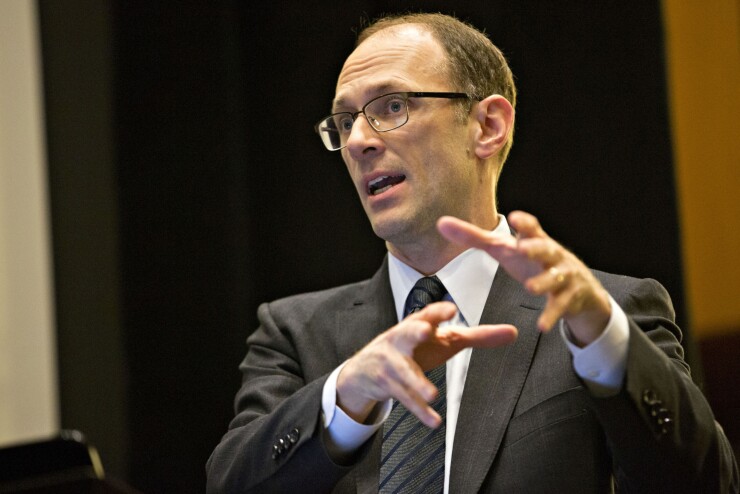Central bankers must augment what they learn from incoming data with clues gleaned from the real economy and avoid putting too much weight on financial markets, said Federal Reserve Bank of Chicago President Austan Goolsbee.
In his first public speech since taking office last month, Goolsbee acknowledged it was tempting to lean on the instant reaction of investors to incoming news, because economic data arrives with a delay.

"But it is a danger and a mistake for policymakers to rely too heavily on market reactions," he said Tuesday in remarks prepared for an event at Ivy Tech Community College in Goshen, Indiana. "Our job is ultimately judged by what happens in the real economy."
Goolsbee, a voter on this year's policy-setting Federal Open Market Committee, did not touch on monetary policy in the text of his speech.
Data that bounces around can make it difficult to see what's going on in the economy, Goolsbee said Tuesday.
"So, it's important to supplement these traditional data with observations on the ground from the real economy," he said. "This is especially true when things are as strange and up in the air as they have been through much of the pandemic times."
The Fed raised rates rapidly last year in a bid to cool inflation. Policymakers slowed the pace of rate increases and delivered a quarter percentage-point hike at their meeting earlier this month, but have said more increases are likely needed. They are fighting to fully rein in price pressures amid a tight labor market and eager consumer.
The benchmark interest rate is currently in a target range of 4.5% to 4.75% and the median estimate of Fed officials in December saw it going slightly above 5% this year. New projections will be released following the central bank's March 21-22 meeting.
Speaking in October, well before the Chicago Fed announced his selection as its next president, Goolsbee said that a 5% rate peak "kind of makes sense to me." While inflation data showed signs of a slowdown late last year, a pick-up in the January figures has investors betting that the Fed will need to raise rates to as high as 5.4%.





